-

Pregnancy-Safe Makeup: A Guide to Safer Beauty Choices
During pregnancy, everything you consume or apply to your skin matters. With hormonal shifts, increased skin sensitivity, and concerns about harmful chemicals, it’s crucial to switch to pregnancy-safe makeup and skincare.
-

Meet the NewBeauty Winner: Mama Sol’s LIPBRELLA Lip Oil with SPF
We Won! Mama Sol’s LIPBRELLA is a NewBeauty Award Winner for Best Lip Gloss with SPF
We’re thrilled to share some exciting news with our community—Mama Sol’s LIPBRELLA 100% Mineral Tinted Lip Oil SPF 20 is officially a NewBeauty Award Winner for Best Lip Gloss with SPF!
-

Earth Day Brand Guide
Celebrate Earth Day with us at Mama Sol! Enjoy our reef-safe mineral sunscreens, get to know other earth-friendly brands, and enter to win a giveaway valued at over $500!
-

Gifts for Mom from Daughter: Unique Ideas She’ll Cherish
The bond between a mother and daughter is one of the most cherished relationships. Whether you’re looking to celebrate her birthday, Mother’s Day, or simply want to show your appreciation, finding the perfect gift can be a meaningful way to say, “I love you.” If you’re searching for unique and thoughtful gifts, Mama Sol offers a beautifully curated selection that can help you celebrate your mom in the most special way.
-

Where Does Sunscreen Go in My Skincare Routine?
Sunscreen is one of the most crucial steps in any skincare routine, yet many people struggle with where it should go in their daily regimen. Should you apply it before or after moisturizer? How does it work with serums and oils? How do you choose a sunscreen that won’t pill when combined with all your other products? Understanding how to properly layer sunscreen ensures you get the best protection from harmful UV rays while maintaining healthy, glowing skin.
-

How to Get Mineral Sunscreen Out of Clothes: Bye, Stains
Mineral sunscreen is an excellent and safe choice for sun protection, especially for those with sensitive skin and pregnant or nursing mamas. Admittedly, it does have a frustrating downside—it can leave stubborn white or yellow stains on clothes.
-
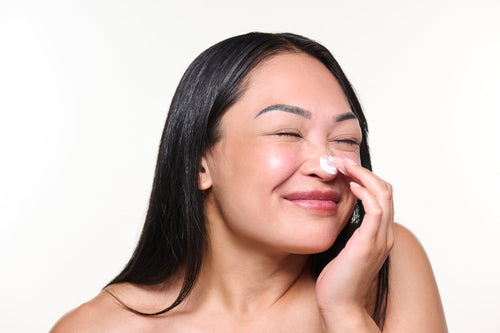
After Sun Skincare: Cool Down, Soothe, and Heal
Spending time in the sun can be absolutely life-giving—those first days of warmth and sunshine after a long winter are everything—but prolonged exposure can leave your skin feeling dry, irritated, and inflamed.
-
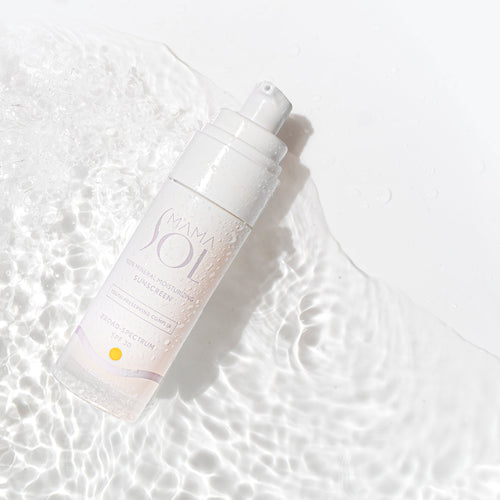
How Long Does Mineral Sunscreen Last?
What is mineral sunscreen? It’s become a go-to, dermatologist-recommended option for those seeking effective sun protection with fewer chemical ingredients. Unlike chemical sunscreens, which absorb UV rays, mineral sunscreens create a physical shield that reflects harmful sun rays away from the skin.
-

The Best Spring Clean for Your Skin
As the flowers bloom and the days grow longer, it’s the perfect time to breathe new life into your skincare routine. Just as we declutter our homes, your skin deserves a seasonal refresh to transition smoothly from the harshness of winter to the warmth of spring. Here’s how to “spring clean” your skin and reveal a radiant, healthy glow.
-

Best Mineral Sunscreens for Dark Skin with No White Cast
It’s a dangerous myth that those with deeper hues and dark skin tones don’t need sunscreen like those with fair or pale complexions. While increased melanin offers some natural protection from the sun, it does not prevent UV damage entirely. Sun exposure can lead to hyperpigmentation, premature aging, and even skin cancer.
-

Spring Skincare Tips: Refresh Your Glow for the New Season
As the flowers bloom and the air warms, spring invites us to refresh not only our homes but also our skincare routines. With the changing season, your skin’s needs shift too, making it the perfect time to revisit your skincare essentials. At Mama Sol, we’re here to help you embrace the glow of spring with natural, effective solutions. Let’s dive into some simple yet powerful spring skincare tips that will have you radiant in no time.
-
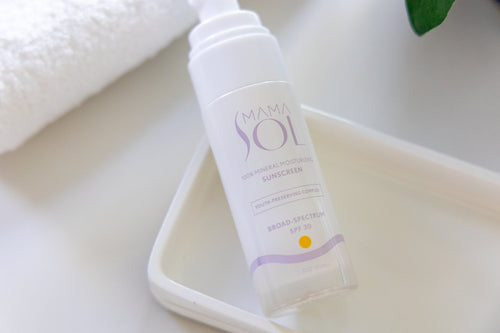
Is Mineral Sunscreen Better?
Choosing the right sunscreen is essential for skin protection, but with so many options out there, it can be overwhelming and confusing. One common question is: Is mineral sunscreen better than chemical sunscreen?
The answer depends on factors like skin type, sun protection level, and environmental impact. We’ll explore the benefits and drawbacks of mineral sunscreen to help you decide if it’s the best choice for you.
-

The 10 Best Valentine’s Day Gift Ideas for Her
Valentine's Day is the perfect opportunity to show your loved ones how much you appreciate them with a meaningful gift or experience. Whether you want to pamper your sweetheart, evoke precious memories, or create new ones together, the right gift can make the day truly special. Here are 10 thoughtful Valentine's Day gift ideas to get you started.
-
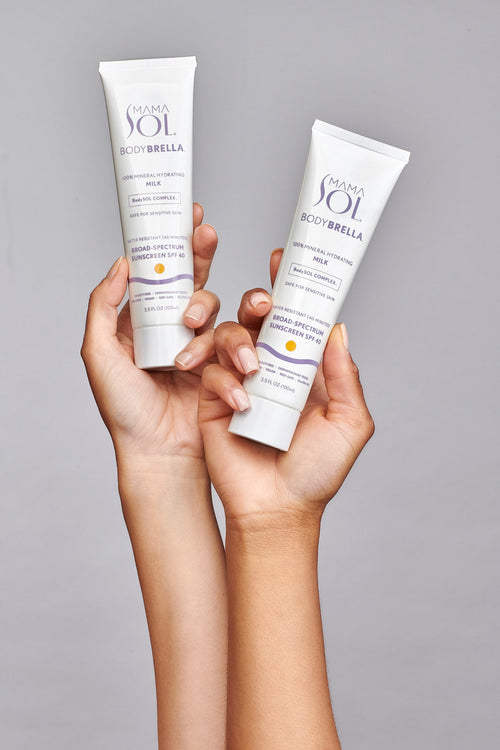
Valentine’s Day Skincare: Sweet Glow
Valentine's Day is a time to celebrate all kinds of love and connection, and glowing skin can help you feel confident on this special day. Whether you're planning a romantic evening, a Galentine’s celebration with your best friends, or enjoying solo self-care, taking care of your skin helps you radiate inside and out. Let’s break down how to get that Valentine's Day glow.
-

SPF Lip Oil: Shine + Sun Protection
When it comes to lip care, hydration and sun protection are non-negotiable. Daily lip oils with SPF are the perfect solution, offering the best of both worlds: deep nourishment and effective, safe sun protection. Whether you’re hitting the beach or heading to the office, this must-have product keeps your lips covered and ready for anything.
-
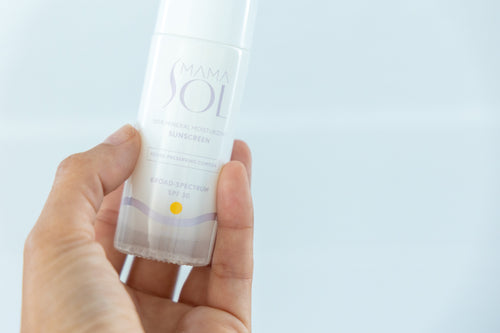
Should You Wear Sunscreen in Winter?
When the temperature drops, it’s easy to put away your sunscreen, assuming it’s a summer-only necessity. Winter is cold, often cloudy and overcast, and the sun doesn’t seem to shine as brightly, right? Raise your hand if you get SAD—seasonal affective disorder—like some of us. The vitamin D deficiency is real.
-
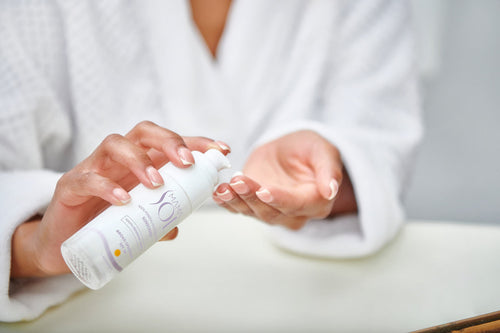
Do You Need Sunscreen Indoors?
The one skincare command you hear over and over is “Don’t forget your sunscreen! ”We all know the importance of protecting our skin from the sun when it comes to beach days and time outdoors. You still need sunscreen when it’s cloudy and during colder seasons like winter, especially with snow that can reflect UV rays.
-
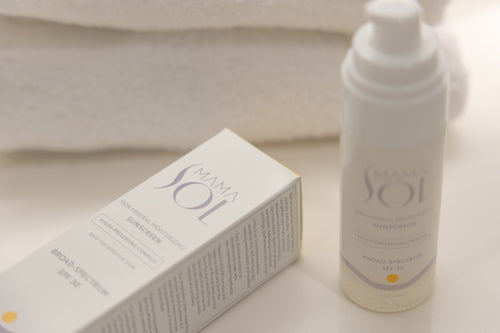
How to Pack Skincare for Travel
Traveling is exciting, but it can be a challenge to maintain your skincare routine while on the go. Whether you’re flying across the country, going on a road trip, or exploring a new city, keeping your skin healthy and glowing during your travels should be a priority. But with limited space in your luggage and the restrictions of airport security, packing your skincare products can feel like a puzzle. In this post, we’ll share essential tips on how to pack skincare for travel and ensure you keep your skin looking its best, no matter where your adventures take you.
-
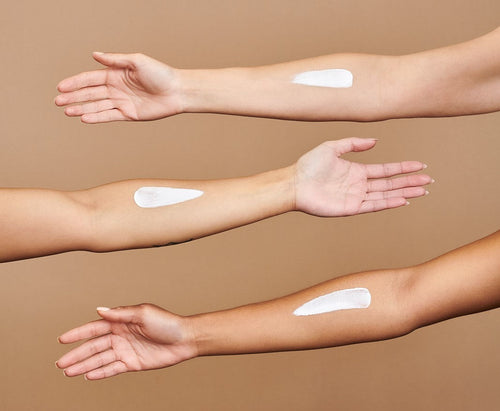
Baby, It’s Cold Outside: Winter Skin Care Tips
As winter approaches, it’s time to rethink your skin care routine. The cold, dry air outside combined with indoor heating can wreak havoc on your skin, leaving it dry, flaky, and irritated. Without proper care, the skin barrier becomes compromised, leading to a host of problems from chapped lips to cracked heels. In this blog, we’ll guide you through some simple yet effective winter skin care tips that will help you maintain glowing, healthy skin all season long.
-

Mama Sol Explains: why are my lips always dry and peeling
Taking care of your lips goes way more than skin deep. Dry, peeling, and discolored lips can be caused by a variety of factors including sun exposure, smoking, too much caffeine, and dehydration. You can restore your lips by limiting these causes, creating a lip care routine, and adopting good habits.
-
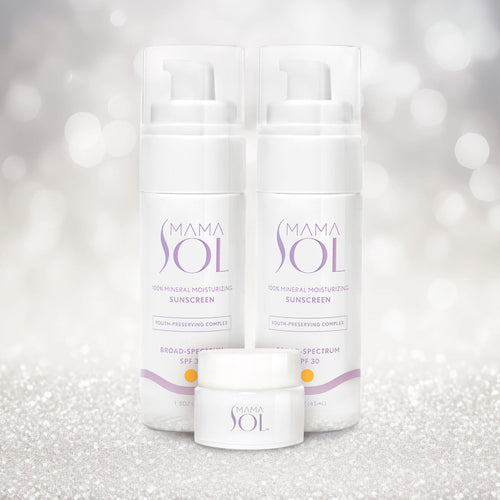
Baby Shower Gifts
Baby showers are an exciting celebration for expecting parents, but finding the perfect gift can feel like a daunting task. With so many options out there, it’s hard to know what will be both useful and meaningful. Whether you’re shopping for your best friend, a family member, or a colleague, choosing the right baby shower gift is important to show your support and love for the parents-to-be. In this post, we’ve compiled 15 unique and thoughtful baby shower gift ideas that will make you the most memorable guest at the party.
-
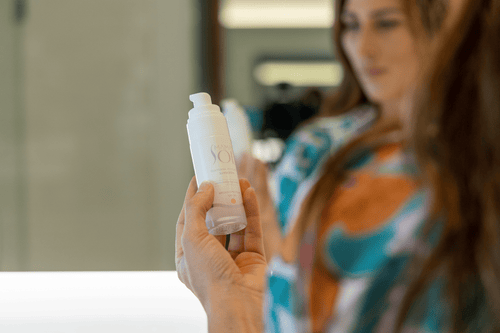
Pregnancy Safe Sunscreen
When you’re expecting, you become hyper-aware of everything that goes on (and in) your body. Okay, that’s a serious understatement—it feels like Puberty 2.30 times Invasion of the Body Snatchers, plus you’re also growing a tiny human inside you that *kicks* a lot. No big deal.
-

Self Care Ideas
There’s something grounding and intentional about starting and ending your day with skincare. Even on your busiest days, you deserve meditative moments of peace and calm. In the morning, begin with a gentle cleanser (this one is especially good for melanated skin), continue with a nourishing moisturizer, and finish with a mineral sunscreen (face, body, and lip) to protect your skin. Before you’ve even left the house, you’ve already accomplished something. Trust us, that’s something to celebrate.
-
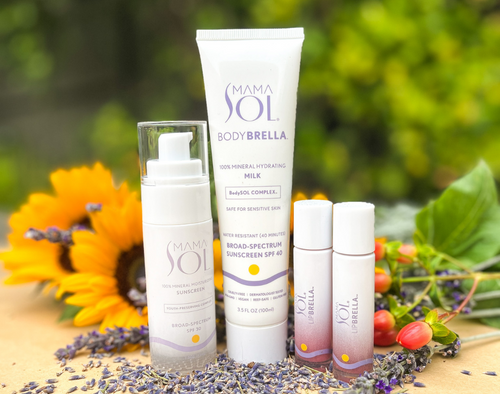
Skincare Holiday Sets
There’s something undeniably special about gifting skincare to loved ones. For those of us who have spent countless hours researching ingredients and testing products, finding that perfect match is infinitely rewarding. This winter, holiday skincare sets are an easy and thoughtful way to say, “You deserve to feel good and pampered.”
-
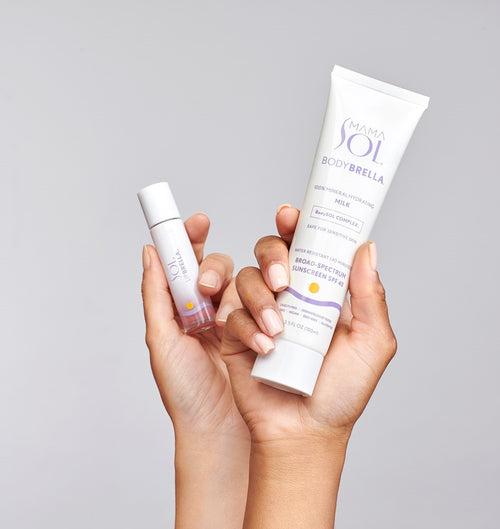
Best Christmas Gifts for Mom: Mama Sol’s Holiday Guide
They say that it’s the thought that matters, but we here at Mama Sol believe that good thoughts give great gifts. Finding the best holiday, Hanukkah, or Christmas gift for your mom or mother figure can be a thrilling yet daunting challenge. Moms deserve to be celebrated with something thoughtful and meaningful (every day, if we’re being totally honest), but the holidays can add extra pressure to find something perfectly suited to her personality, preferences, needs, and the relationship you share.
-

Change Up Your Fall Skincare Routine
As the leaves change and temperatures drop, our skin begins to crave extra nourishment and protection. For many, fall is a season of new routines, from busy back-to-school schedules to a renewed focus on self-care, as brisk, cooler weather replaces muggy, hot summer days. For mamas, it’s also a time to reconsider what’s really in our skincare, making thoughtful choices that prioritize both effectiveness and safety.
-
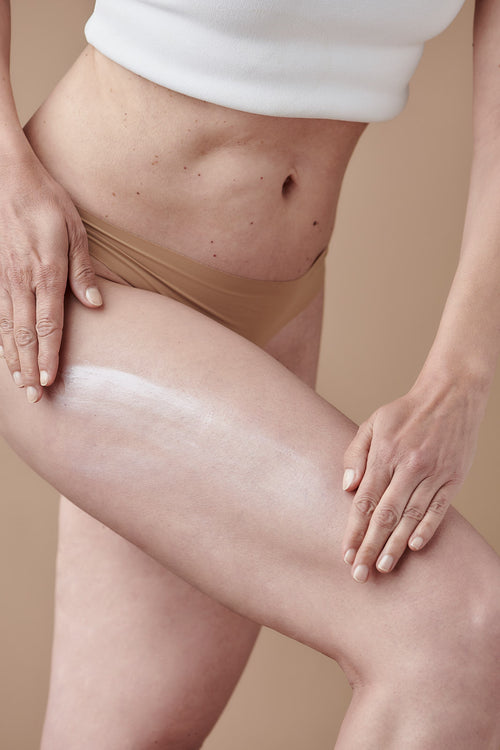
Skin Problems After Pregnancy
Pregnancy is a roller coast of a journey that brings about astonishing (and often unbelievable) changes in a woman’s body. It’s totally a miracle to grow a tiny human and deliver them into the world. Even if you think you may be prepared for some of these big changes—pregnancy can feel like Puberty 2.0—you might be surprised by some of the skin challenges that come up post-pregnancy. You may even find yourself asking, “Is this normal?” every single day. We’ve been there.
-
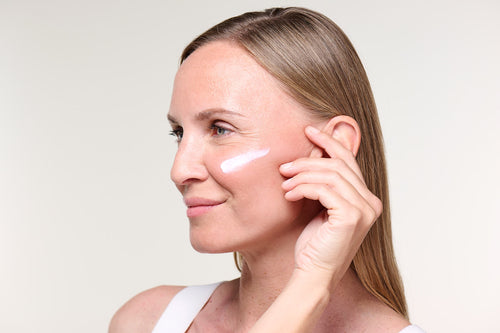
Fall Skincare Essentials
As the leaves change color and there’s a crispness in the air, it's not just your wardrobe that needs a reboot. (See what we did there with “boot”? Because boot season.). Your skincare routine needs to change it up for fall, too.
-

Breast Cancer Awareness and Health Tips for Women and Moms
As Breast Cancer Awareness Month comes to a close, our hope is that the knowledge and awareness gained during this time inspires year-round action. Early detection, self-advocacy, and holistic health practices are essential for all women, especially those in their childbearing years. This post, with insights from Amanda Grilli, an oncology physical therapist and breast cancer coach, covers the importance of early detection, the role of lymphatic health, non-toxic products, and practical recovery tips. Learn how small, proactive choices can have a lasting impact on breast health and discover resources, including Amanda’s nonprofit, Well Beyond Breast Cancer, which funds vital physical therapy services.
-

Eco-Friendly Sunscreen
Sunscreen is an essential part of our daily skincare routine, offering protection from the harmful effects of the sun's ultraviolet (UV) rays. But not all sunscreens are created equal. While they help protect our skin, many traditional, chemical-based sunscreens can harm the environment, especially marine ecosystems.
-
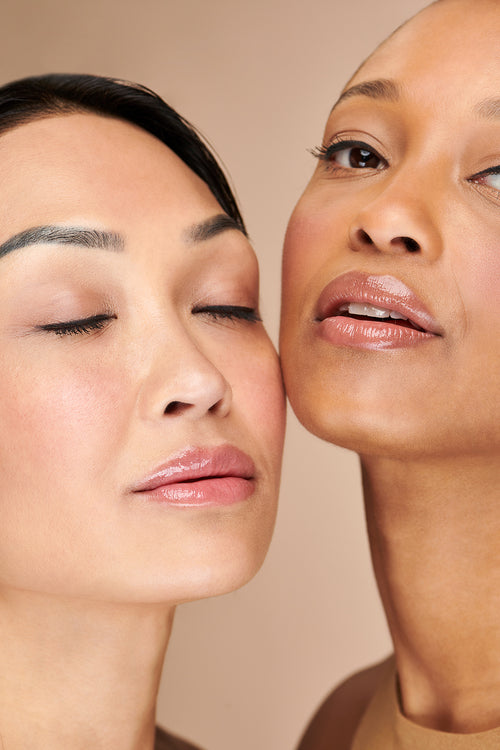
Lip Care for Dark Lips
It’s often assumed that those with lighter skin tones are the most vulnerable to sunburn, hyperpigmentation, and discolored lips. But the reality is that people with darker skin tones are more prone to hyperpigmentation, due to producing more melanin (the pigment that gives your skin its unique hue) than those with paler skin. Melanated skin is beautiful, producing lip colors in rich hues that range from soft browns to dusky purples.
-

How to Prevent Loose Skin After Pregnancy
No one really warned us that pregnancy was going to be like Puberty 2.0 but, um, on extreme mode. While we all see the cutesy “you’re growing a cantaloupe” fruit or veggie baby bump social updates, we don’t really share as much about the not-so-cute stuff that happens during and after pregnancy.
-

Wearing Sunscreen = Everyday Results
Sunscreen is, hands down—pun most definitely intended— one of the simplest yet most powerful ways to protect your skin and ensure healthier skin. It’s easy to remember to apply sunscreen when it’s hot and sunny or when you’re at the beach, but wearing sunscreen every day is a game-changing habit that leads to healthier, more resilient skin.
-

Sunscreen Tips for Summer
Summer is the time for long days and outdoor adventures, but it's also when the sun's rays are at their strongest, making it crucial to protect your skin. Sunscreen is your best defense against harmful UV radiation, preventing sunburn, premature aging, and even skin cancer. We'll cover everything you need to know about choosing, applying, and optimizing sunscreen to keep your skin healthy and glowing all season long.
-
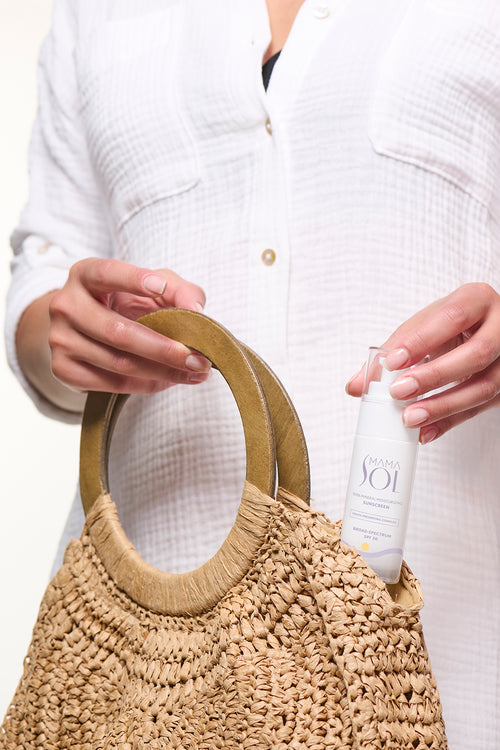
Mama Sol’s Fourth Trimester: Post-Pregnancy Skincare
The postpartum era, often called the fourth trimester, is a time of massive change. It’s a mix of all the emotions, from joy and relief for a healthy baby’s arrival to nostalgia and anxiety about how to take care of your new tiny human. While you’re now devoted to keeping the little one alive, it’s just as important to take care of yourself.
-
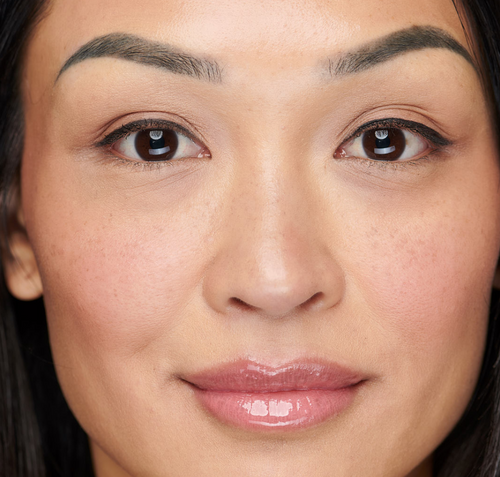
Lip Care Routine
What’s more annoying than chapped lips? Not being able to locate a single one of your 50 lip balms or finding one stick uncapped, smushed, and totally covered in lint and crumbs at the bottom of a giant tote bag? Asking for a friend.
We’ve covered how to protect sensitive skin areas like your face, neck, chest, and ears, but it’s easy to forget your lips, which do so much heavy lifting each day. The skin of your lips is more sensitive and prone to drying, irritation, flaking, chapping, and even cracking. These issues often crop up thanks to dehydration, sun damage, harsh weather, and even some daily habits (we feel you, constant lip-lickers!).
-
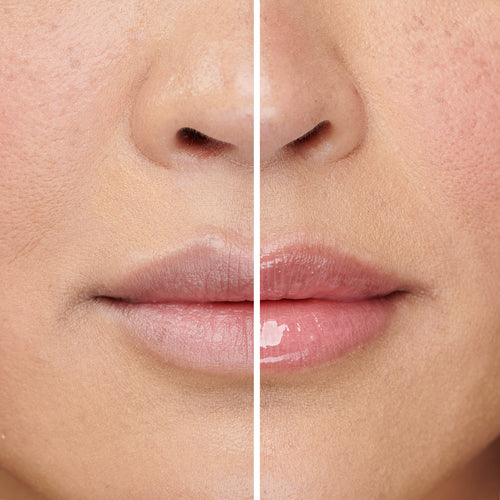
Mama Sol Explains It All: Best Sunscreens for Lip
In a world of products that promise everything from super-glossy, plumper lips to transfer-proof color that survives dinner, coffee, and dessert (however you define dessert, wink wink), it’s easy to forget that your lips need daily sunscreen too. And yes, lips can totally get sunburned, especially if you’ve got sensitive skin.
-
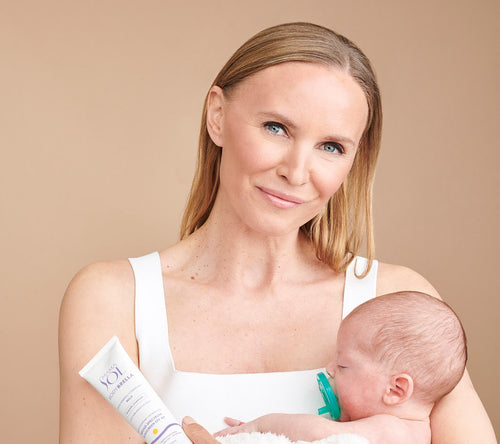
Birthday gifts for pregnant women
Welcoming a new life into the world is a joyous occasion, and what better time to celebrate than on the birthday of an expecting mother? This blog post explores the significance of commemorating this special day and offers insights into choosing the perfect birthday gifts during pregnancy.
-

Mama Sol Explains It All: Your Pregnancy Skincare Routine
Want to make sure your pregnancy journey includes a safe and effective skincare routine? You’re in the right place. Explore expert tips, recommended products, and nurturing practices to keep your skin healthy and radiant during this special time. Embrace the glow with our guide to a pregnancy-safe skincare routine.
-

Mineral vs. Chemical Sunscreens
Explore the definitive guide to mineral vs. chemical sunscreens in our latest Mama Sol blog post. Discover the science, benefits, and drawbacks of each type, learn how to choose the right sunscreen for your skin type, and debunk common SPF myths. Perfect for anyone looking to make an informed decision on sun protection.
-

What Is Mineral Sunscreen? Mama Sol Explains It All
We get it—it can get totally confusing to navigate a world full of sunscreen acronyms (SPF, UV, IR, etc.), science jargon, and endless sun protection options.
-
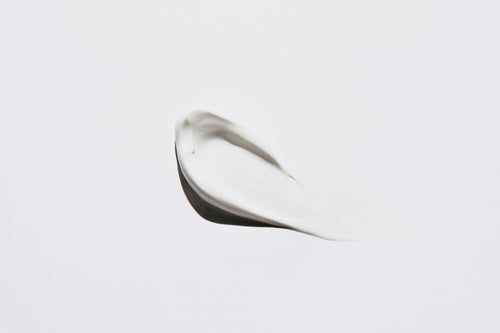
Mama Sol's 6 Best Mineral Sunscreens for Face
Trying to find the best mineral sunscreen for your face but overwhelmed by endless options? Mama Sol breaks down SPF lingo, UVA/UVB rays, mineral vs. chemical sunscreen, and our favorite mineral sunscreens (including tinted ones!).














































